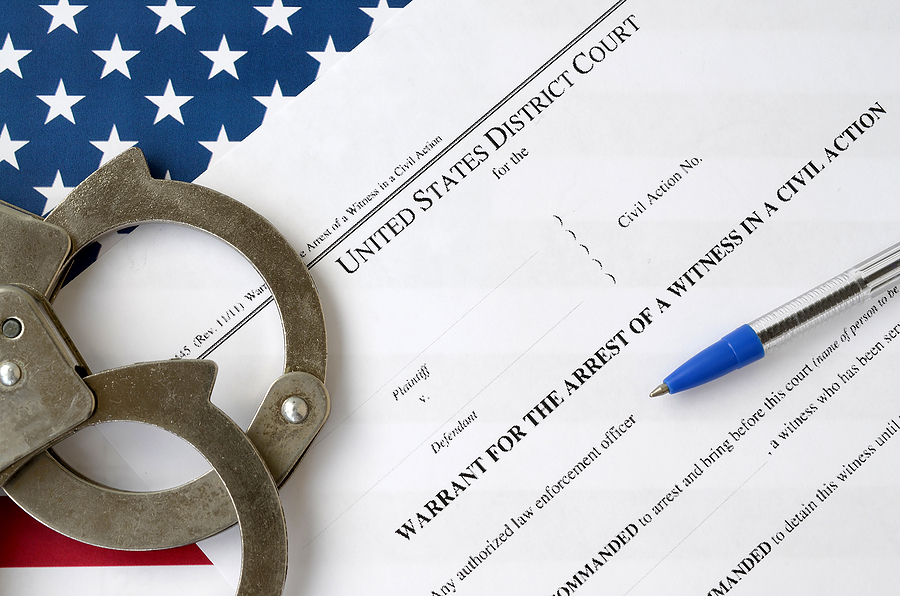If you’re living in Indiana, understanding the legal system—specifically warrants—is crucial. Warrants aren’t just legal jargon; they hold real implications for your day-to-day life and, in some cases, your freedom. With various types of Indiana warrants in play, knowing how they work and what to do if you’re issued one can keep you or your loved ones out of unnecessary trouble.
This blog will walk you through the types of warrants in Indiana, the risks of ignoring them, and the steps you can take to resolve them legally and effectively. Whether it’s an arrest warrant, a bench warrant, or a search warrant, we’ll help you understand what’s at stake and how to handle the situation if it arises.

Introduction to Indiana Warrants
A warrant is an official legal document issued by a judge or magistrate that authorizes specific actions, typically in relation to law enforcement activities. Warrants often come into play during criminal investigations or when individuals fail to comply with court orders. For Hoosiers (a nickname for Indiana residents), warrants are more than just paperwork—they give law enforcement the legal authority to act in ways that can drastically affect your life.
By familiarizing yourself with Indiana’s warrant system and acting promptly to address any issues, you can protect your rights and avoid a sudden, unpleasant encounter with the law.
Types of Indiana Warrants
Indiana has three primary types of warrants, each with its own purpose and consequences. Let’s break them down:
Arrest Warrants
An arrest warrant is issued when a judge believes there’s probable cause that you have committed a crime. This allows law enforcement to take you into custody.
- Reasons for Issuance: Serious offenses like theft, assault, or drug possession often result in arrest warrants. Even minor infractions that escalate due to unpaid fines or missed court dates can lead to one.
- How to Check for Arrest Warrants: You can check for active arrest warrants in Indiana by contacting your local sheriff’s department or accessing online public records through county court websites.
Ignoring an arrest warrant could lead to a sudden arrest—often at inconvenient times, like during a traffic stop or even while you’re at home.
Bench Warrants
A bench warrant is typically issued for noncompliance with court orders, such as failing to appear in court or not paying a court-ordered fine.
- Common Reasons: Missing a court date is one of the most frequent reasons for bench warrants. Other examples include not fulfilling probation requirements or failing to pay restitution.
- Process for Recall: To resolve a bench warrant, consult an attorney immediately. They may be able to help you request a recall or surrender voluntarily to minimize penalties.
Bench warrants are often underestimated. While they might not involve an immediate arrest, the repercussions can still be serious, such as a suspended driver’s license or a tarnished record.
Search Warrants
Search warrants give law enforcement the authority to search a specific location for evidence related to a crime.
- Criteria for Issuance: Law enforcement must demonstrate probable cause to a judge and outline precisely what and where they plan to search.
- Rights of Indiana Residents: It’s important to understand your rights during a search. Law enforcement cannot exceed the scope of the warrant, and you have the right to ask for a copy before the search begins.
Search warrants reflect the balance between law enforcement needs and protecting your Fourth Amendment rights. Treading carefully when dealing with law enforcement is crucial.
Consequences of Not Addressing Warrants
Ignoring a warrant—regardless of type—can have serious legal repercussions, including fines, additional charges, or even incarceration. Arrest warrants and bench warrants, for example, don’t expire. What begins as a minor issue can snowball into a criminal record, financial hardship, and jail time.
Taking immediate action on warrants can prevent such outcomes and keep your legal situation manageable.
Steps to Take If You Discover a Warrant
If you find yourself dealing with an Indiana warrant, here’s a step-by-step guide to address the situation effectively:
- Remain Calm – Finding out about a warrant can be frightening, but panicking only makes matters worse.
- Confirm the Warrant – Check with your local court or sheriff’s office to verify the existence and details of the warrant.
- Contact an Attorney – An experienced attorney can guide you through the legal process and help minimize penalties.
- Arrange for Prearranged Bail – For arrest warrants, prearranged bail allows you to surrender on your terms while minimizing time in police custody.
- Turn Yourself in (If Necessary) – For serious matters, surrendering voluntarily demonstrates good faith and may influence how the court views your case.
- Follow All Court Orders – Addressing the warrant doesn’t end once you’ve surrendered. Attend all court appearances and comply with any subsequent orders.
Prearranged Bail Bonds for Arrest Warrant Surrenders
Surrendering for an arrest warrant can be intimidating, but prearranged bail bonds offer a safer, more controlled process. Taking this proactive approach can save you time, minimize embarrassment, and lower stress for you and your loved ones.
Benefits of Prearranged Bail
By securing bail services in advance, you can significantly reduce the time spent in custody and gain a sense of control over the process. In some cases, a bail bond agent can facilitate an arrest warrant surrender in as little as an hour, from start to finish.
How It Works
Contact a reputable bail bond company. They’ll guide you through the bail process, help you understand the terms, and assist with posting bond upon your voluntary surrender. Some bondsmen provide free rides to and from the jail, allowing customers to leave their cars at the agency during the process.
Know Your Legal Rights and Resources
When facing any type of warrant in Indiana, knowing your rights is essential. Here are some tips and resources to help you along the way:
- You Have the Right to Counsel – Always consult a lawyer who specializes in Indiana law to ensure you’re making informed decisions.
- Local Legal Aid Organizations – Nonprofit organizations like Indiana Legal Services provide free or low-cost legal support for qualifying individuals.
- Community Programs – Some counties offer self-help centers or diversion programs to resolve minor offenses without a court trial.
Understanding your options will give you a clear path forward and help protect your legal rights.
RECAP
Indiana warrants may sound intimidating, but with knowledge and prompt action, they don’t have to be life-disrupting. By understanding the various types of warrants—arrest, bench, and search—and taking immediate steps to resolve them, you can protect your record and your peace of mind.
If you have an arrest warrant, consider prearranged bail to make the surrender process smoother. Don’t hesitate to seek professional legal advice or bail bond services to help you through the process.
For more insights and assistance with arrest warrant surrenders, connect with an experienced professional today, and take control of your situation. Contact Woods Bail Bonds at 317-876-9600 to set up prearranged bail bond service for warrants and probation violations in Indianapolis, Indiana. Get in and out of jail in as little as an hour!
Related Posts:
Setting Up Prearranged Bail for Outstanding Arrest Warrants in Indianapolis
Your Legal Guide to Dealing With an Arrest Warrant in Indiana
Tips to Navigate Arrest Warrants in Indiana: A Must-Read for Hoosiers









